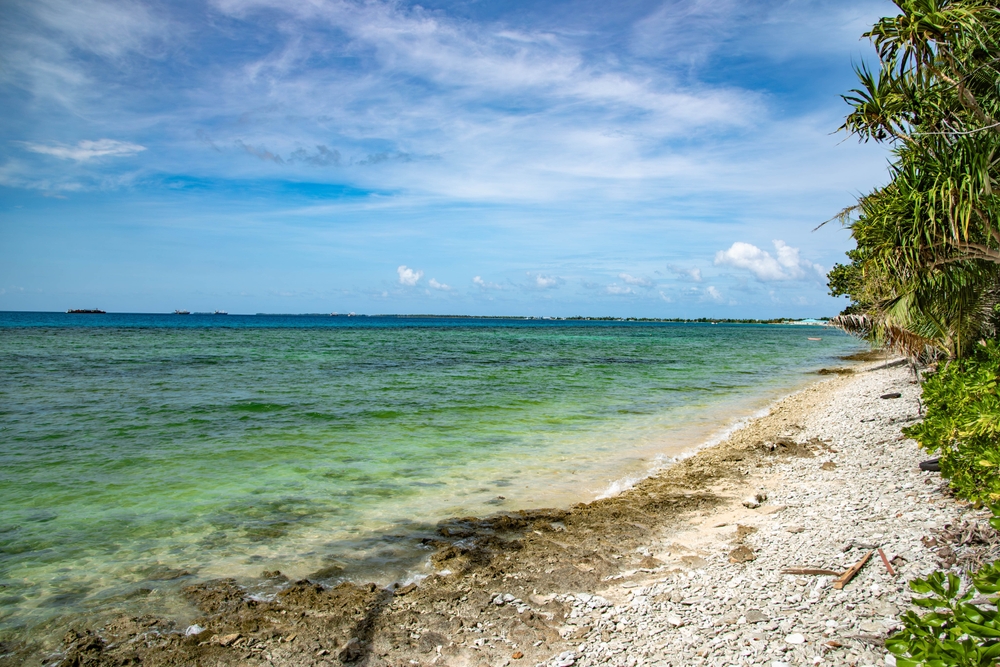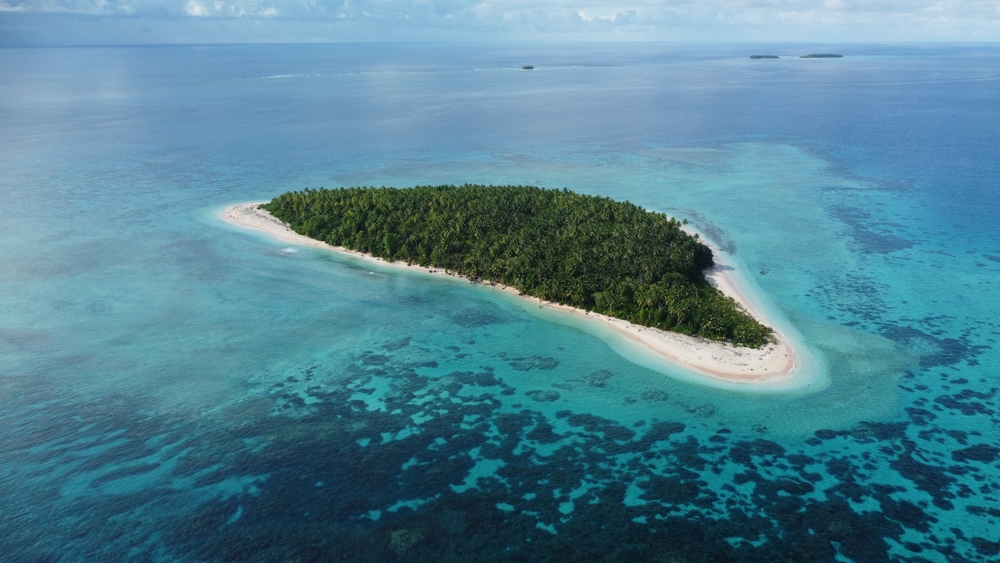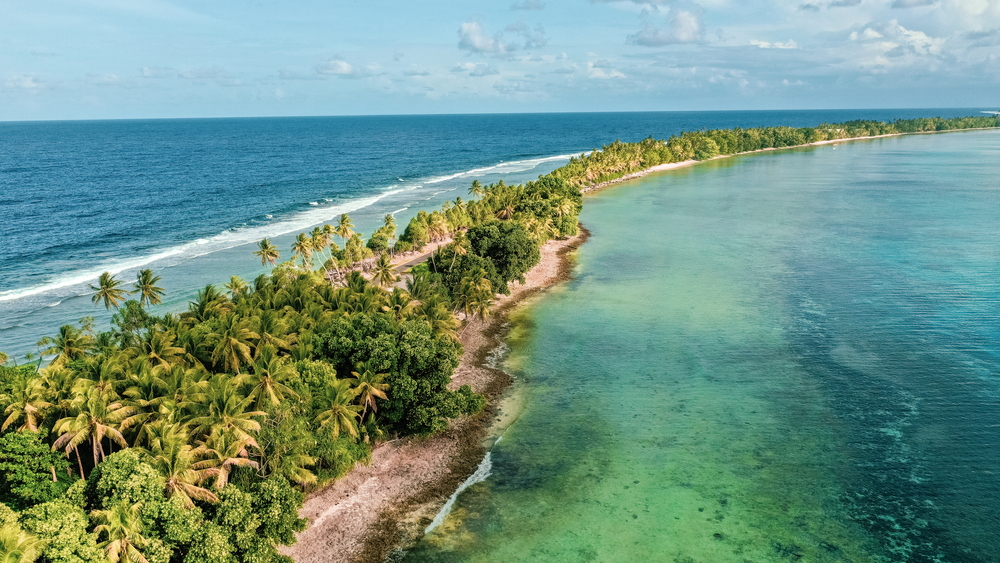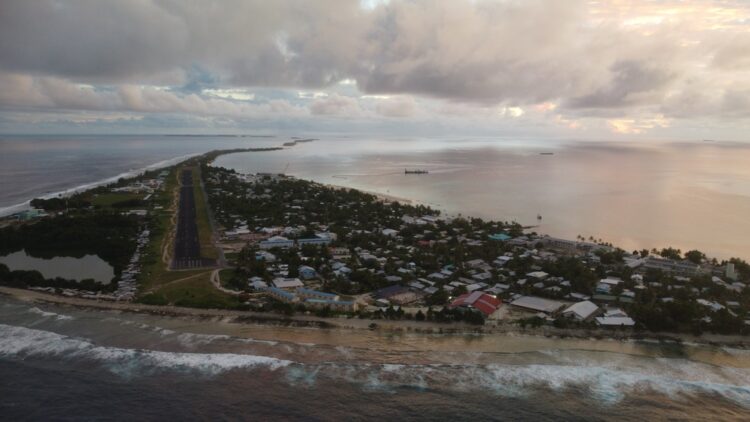Have you ever heard of Tuvalu? Or perhaps met someone who’s visited? If your answer is “no,” you’re not alone. This remote Pacific nation remains one of the least visited countries in the world. Tuvalu offers a rare opportunity to experience natural beauty far from the tourist crowds. At the risk of ruining a paradise, let me tell you about this remarkable country.
In the heart of the Pacific, about 620 miles north of Fiji and just below the equator, Tuvalu consists of six atolls and three islands. With a total land area of only 9.6 square miles, this small nation boasts fascinating lagoons, coral reefs, and tiny islets. Its location places it 12 hours ahead of Greenwich Mean Time, sharing the same time zone as Fiji. The population is approximately 10,000 people.
The climate in Tuvalu is, as you might expect, tropical, with temperatures averaging around 86°F throughout the year with heavy rain and gales from November to March, and easterly winds from March to November. Rainwater, stored in tanks, serves as the primary water source, making conservation vital for both residents and visitors.

The ancestors of the Tuvaluan people arrived on the islands approximately 2,000 years ago. Traditional society, led by chiefs, thrived for centuries before encountering significant change with the arrival of European traders in the 1820s and missionaries in the 1860s. Christianity, introduced by the London Missionary Society, remains deeply woven into the fabric of Tuvaluan life today.
Tuvalu, once known as the Ellice Islands, became a British protectorate in 1877 and later a colony. It achieved independence on October 1, 1978, becoming a constitutional monarchy and the 38th member of the Commonwealth. Despite its small size and challenges, Tuvalu is recognized as one of the world’s most peaceful nations. It joined the United Nations as its 189th member in the year 2000. Between 2000 and 3,000 people recreationally visit Tuvalo annually,

Tuvalu’s environment is largely unspoiled. The Funafuti Marine Conservation Area, established in 1999, spans 12.5 square miles of reef, lagoon, and islets. It is home to diverse marine life, including the endangered green sea turtle, and offers visitors opportunities for snorkeling, picnicking, and exploration. For diving enthusiasts, Tuvalu’s coral reefs present an excellent underwater experience. While there are no local dive shops, hotels often assist visitors with renting equipment and finding prime locations to explore the vibrant marine ecosystem.
Island hopping is another popular activity. By chartering a yacht, travelers can tour the nine islands, stopping to fish or simply soak in the surroundings. One standout destination is Afelita Island, where visitors can enjoy an exclusive retreat, complete with a personal chef preparing fresh, authentic Tuvaluan dishes.
The capital, Funafuti, is home to nearly half of Tuvalu’s population of around 10,000 people. Transportation around the islands is simple, with motorbikes, bicycles, and minibusses readily available. Alternatively, a leisurely walk offers the chance to observe village life up close and connect with locals.
For those seeking cultural experiences, traditional dance performances and ceremonies take place at the *Maneapa* (town hall). Nightlife is low-key, with two nightclubs, Matagigali and Tefota, open on weekends.
Tuvalu’s peaceful simplicity extends to its amenities. The National Bank of Tuvalu operates limited hours, and credit card services are unavailable, so travelers should carry cash or traveler’s cheques. The local currency is the Australian dollar. English and Tuvaluan are widely spoken, and a general hospital in Funafuti provides basic medical and dental care.
Tuvaluan handicrafts, such as mats, baskets, necklaces, and woodcarvings, are renowned across the Pacific and make excellent souvenirs. These can be purchased at the Women’s Handicraft Center near the airport or on the outer islands.

As one of the world’s lowest-lying nations, Tuvalu faces the existential threat of rising sea levels caused by climate change. Its people contribute only a fraction of global greenhouse gas emissions but are disproportionately affected. Coastal erosion, flooding, and salinity intrusion are already impacting daily life. The government is preparing for the possibility of relocating the population, with thousands of Tuvaluans already living in New Zealand.
So, are you ready to uncover the hidden charm of Tuvalu?


